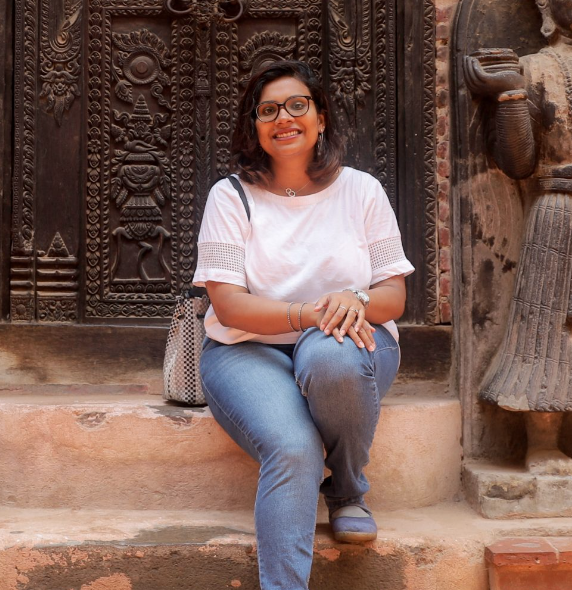

The Shack Story | A Tale From Haa Valley, Bhutan
In this larger world where we live, there are numerous smaller worlds, each nurturing itself differently, completely hidden from the rest.
Such was Haa Valley (‘Haa’ in Dzongkha translates to ‘rice’), situated in the Western part of Bhutan, bordered by Tibet. Scarcely populated, Haa Valley appeared like a dreamland to me. Being an atheist, I don’t believe in God, but I would love to thank the Creator, for creating such an alluring place.
In the small world of Haa, where people are completely reluctant about what is happening in the rest of the world, I found an even smaller world – a little shack next to the Karpo Lhakhang (‘Lhakhang’ in Dzongkha translates to ‘temple’).
My morning started quite early that day, and I was excited to attend the Tshechu Festival in Karpo Lhakhang. The music of the drums, lingm (six-holed flute), and the chiwang (Tibetan two-stringed fiddle) could be heard from a distance, and everyone around me wore brightly colored clothes. I could feel the essence of celebrations in the air.
This little shack was right next to the Lhakhang, inside a shady lane. Probably the magnificently decorated Lhakhang made the shack look duller than it usually is. My friend, who was accompanying me, thought it was a bad idea to have breakfast there – he said the place was stinking and I wouldn’t be able to eat there. But we didn’t have many options, and there was something about that place that dragged me in. Located at the edge of the cliff, surrounded by the Himalayas on all sides, the Haa Chu (‘Chu’ in Dzongkha translates to ‘river’) flowing behind it, and the entire jolly ambiance somehow suppressed that pungent smell that lingered around the shack. In a 10x10ft room, it had two benches with two tables, a rack full of Bhutan-made chips, local liquor bottles, Coke, Fanta, and large cans full of tea made with yak milk, and big vessels full of beef and cheese momos.
We instantly grabbed some steaming hot momos, served with an even hotter chili sauce!
In a world where the people are waging wars over religion, this shopkeeper worships the King and Queen, and has cut out their photos and pasted them all over the walls of his little shack. Mr. Wangchuck, living in his Royal Palace in Thimpu, would never come to know about this guy, who considers him to be equivalent to the Almighty!
Soon, three men stepped into the shack, wearing bright yellow and orange gho (the traditional dress, worn by Bhutanese men). They spoke to the shopkeeper in their local language, after which he poured three cups of tea, and they walked away. Later, we realized that those three men, wearing identical clothes, were to perform at Tshechu.
After an interval of a few seconds, a lady came in, with her daughter and her dog, which occupied half the floor space, while trying to relax. The lady also asked for a cup of tea, and the girl had a plateful of momos.
While I sat on the other side, observing all these people, my friend was busy clicking their photos. He was more keen on capturing all the emotions that flowed in and out with those people, and I tried to interpret what they were saying to each other. This, I feel, is the most interesting part of not understanding a language – you never know what people are saying, and thus, you have full freedom to make your interpretation, based on their body language!
The momos acted as appetizers, and I felt like hogging on some more food.
“Maggi?” – I told the guy, who made some gestures and called in another person. This new guy said, “Koka, Koka”. We took a few seconds to understand that ‘Koka’ is the local product, more like Wai-Wai, when the first guy passed a packet to the second one, who showed his fingers to assure us that ‘Koka’ would be ready in 5 minutes.
As this entire thing was happening, the music in the background became more intense, only to make everyone understand that the program was about to begin.
Wearing colorful kiras (the traditional dress worn by Bhutanese women), four beautiful ladies stepped in, one with her child, who wore a tiger’s mask. As my friend tried to take his photo, he stood still for a moment and then jumped to hug his mother. (Well, wearing a tiger’s mask didn’t make him brave enough, it seemed!) Those ladies giggled amongst themselves, and probably they were saying something about us, who were the only differently dressed people there.
In less than 5 minutes, our bowl of ‘Koka’ arrived – noodles dipped in soup, a little blunt in taste, with a tinge of cheesy flavor, and chunks of chili. The wide smile with which he served the food killed the bluntness, and it seemed to be the most delicious noodles that I’d ever tasted.
Two monks also came in and asked for beef momos. They assured us that there was still some time for the program to start.
I asked the shopkeeper if he was also going to the Lhakhang or not. He nodded his head and in broken English, he said that there were more customers during the festival, so he planned to be at his shack.
While most people in Haa Valley waited for Tshechu to celebrate, this guy looked forward to the festival, hoping to make a little more money than he does in the rest of the year.
I hardly spent 15 minutes in that shack, and in those 15 minutes I came across a different world, that was complete in itself. A world that was comprised of few, a world away from the chaos, cacophony, and corruption, a world unaware of mistrust and hatred, a world that’s immensely colorful and happy, a world where people know themselves and others, a world where people don’t care much about what’s happening elsewhere – the little shack – a world in itself, had so many stories to tell, that the larger world would never get to know!



















